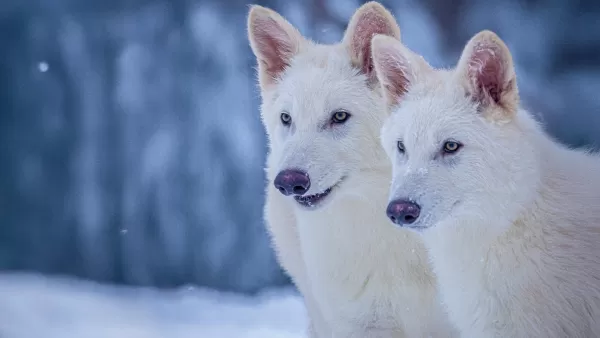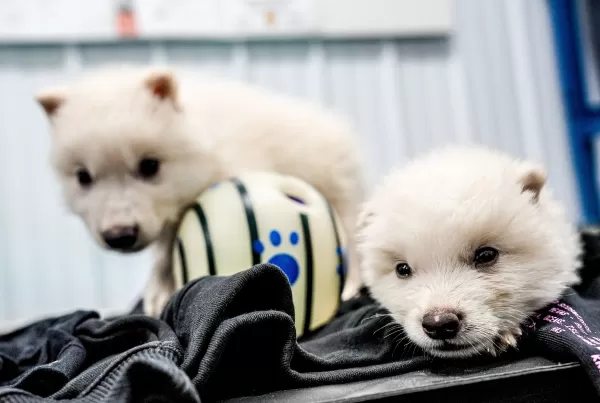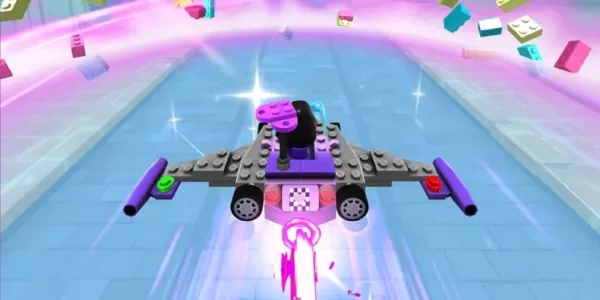Bringing a super-sized canine back from extinction after 12,500 years might sound like a plot from a thrilling sci-fi movie, complete with dramatic special effects and intense action scenes. Yet, it's not just fiction; it's a reality crafted by the biotech company Colossal Biosciences. They've successfully resurrected three dire wolves, named Romulus, Remus, and Khaleesi, using a blend of DNA from the common gray wolf, gene-editing technology, and domestic dog surrogates. These majestic creatures are now residing in a secret location within the US, sparking both awe and curiosity.
 Romulus and Remus at three months old
Romulus and Remus at three months old
Colossal Biosciences, driven by a passion that could rival any Game of Thrones fan, has not only brought these dire wolves to life but has also set a new benchmark in genetic engineering. "I could not be more proud of the team. This massive milestone is the first of many coming examples demonstrating that our end-to-end de-extinction technology stack works," stated CEO Ben Lamm. The team's innovative approach involved extracting DNA from a 13,000-year-old tooth and a 72,000-year-old skull, culminating in the birth of healthy dire wolf puppies.
 Romulus and Remus at one month old
Romulus and Remus at one month old
This isn't Colossal Biosciences' first venture into de-extinction; they previously engineered a Colossal Woolly Mouse, designed to mimic a mammoth's phenotype, using computational analysis of numerous mammoth genomes. Critics, however, question the authenticity of these dire wolves, suggesting they are essentially normal wolves dressed up in a genetic costume, given the limitations of existing dire wolf DNA.
Beyond the spectacle and social media buzz, Colossal Biosciences has a deeper mission: to leverage their findings for the conservation of current species. "The de-extinction of the dire wolf and an end-to-end system for de-extinction is transformative and heralds an entirely new era of human stewardship of life," explained Dr. Christopher Mason, a scientific advisor and board member at Colossal. The technology used to revive the dire wolf could also play a crucial role in saving other endangered animals, highlighting the potential of biotechnology in conservation efforts.
To ensure the well-being of Romulus, Remus, and Khaleesi, Colossal Biosciences has collaborated with the American Humane Society and the USDA to establish a 2,000+ acre preserve, complete with a dedicated staff to care for these living legends.








